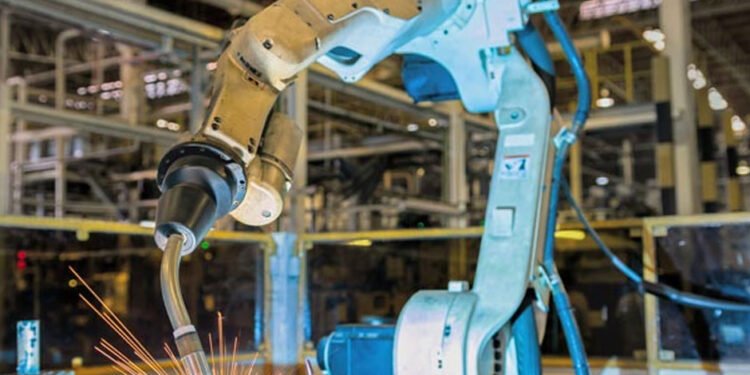The world is constantly evolving and industries are forced to adapt to stay ahead. Nowhere is this more apparent than in the manufacturing sector. This is where technological advancements and changing consumer demands are driving significant shifts.
Industrial equipment manufacturers are no strangers to these changes. They are at the forefront of finding innovative solutions to keep up with the rapid pace of development. These manufacturers are constantly adapting to meet the needs of various industries.
In this post, we will delve into how industrial equipment manufacturers are navigating these shifting tides. Read on.
The Innovator’s Dilemma
Jim Hackett, former CEO of Ford Motor Company, once said, “Great industries are built on great problems.” This epitomizes the resilience and ingenuity endemic to manufacturing. The industrial equipment sector has historically been a bedrock of innovation.
It is driven by the need to solve complex challenges. However, the sector faces a new dilemma, a modern-day battle between keeping up with the pace of technological change. And also the cost of investment versus the risk of stagnation and obsolescence.
A Tradition of Ingenuity
From the early days of the industrial revolution to the era of Industry manufacturers have been the architects of change. The skilled workers of yesteryear have transitioned to the robotic technicians and software engineers of today.
However, the core spirit of creativity and problem-solving remains constant. This age-old tradition is what propels the industry forward. It harnesses tech innovation for smarter, more efficient equipment.
Consult an expert to learn more about industrial machinery and how industrial control equipment has affected the market. It’s very important to do a lot of research on this topic.
Responding to Global Trends
Today’s industrial sector is no longer a collection of siloed industries but an interconnected web of global commerce. There are some instances of driving significant shifts in equipment manufacturing. These are such as:
- The expansion of international markets
- the push for sustainability
- the urgency for digital transformation
Sustainable Manufacturing Practices
The call for sustainability is not new, but its impact on manufacturing is profound. Individuals need to understand the shift towards greener practices. These are such as:
- using recyclable materials
- reducing waste
- optimizing energy consumption
These are some new manufacturing equipment that impact the bottom line. Which also helps to reduce the industry’s environmental footprint. These are such as the development of
- fuel-efficient engines
- solar-powered facilities
- even 3D-printed components
Digital Transformation and Automation
Digital transformation is revolutionizing the way factories operate. With the use of smart technologies, manufacturers can now:
- predict maintenance needs
- customize products at scale
- connect entire supply chains
The increasing role of automation is also reshaping the workforce. This is with robots and artificial intelligence taking on dangerous or repetitive tasks. This is while human workers focus on managing and developing the technology.
Challenges and Opportunities
The path to innovation is rarely smooth, and the industrial equipment sector is no exception. For every opportunity technology creates, new challenges emerge. Here are some of those.
Workforce Reskilling
Automation and AI bring with them the promise of improved productivity but also necessitate a shift in the required skill set. Industrial manufacturers must be aware that the future of work in this sector will be tech-centric.
Vocational education is just as critical as traditional academia in preparing the next generation of workers. This is to thrive in the modern manufacturing landscape.
Regulatory Dynamics
Manufacturers also grapple with evolving regulations and standards. This is particularly true in areas like:
- cybersecurity
- data privacy
These nuances in compliance can mean the difference between success and failure. This is in an industry that must adhere to strict quality and safety regulations. This is very important in industrial control equipment.
Emerging Markets and Globalization
Globalization presents both opportunities and threats. On the one hand, access to new markets and resources can fuel growth.
On the other, increased competition requires manufacturers to constantly innovate. This is to maintain their edge.
Case Studies in Industrial Innovation
Real-world examples can vividly illustrate how industrial equipment manufacturers are adapting to the changing landscape. Here are some of them.
Siemens: A Leader in Digital Transformation
Siemens has been at the forefront of the digitalization trend. They use data analytics and IoT to create new services and business models.
By harnessing the power of “smart technology,” Siemens’ equipment can communicate with each other and with a central system. This streamlines operations and enhances performance.
Toyota’s Lean Process Revolution
Toyota’s commitment to the “lean process” has become a benchmark for efficiency and waste reduction. The company has transformed the production process. This is through concepts like Just-in-Time and Kaizen.
It has also made warehouse supplies last longer. This influences manufacturers worldwide to rethink and improve their operations.
The Way Forward
In closing, manufacturers must recognize that the industrial equipment sector is an exciting, dynamic field teeming with opportunities for growth and positive change. The ability of manufacturers to adapt to new technology and market trends shapes the products that consumers use every day.
It also drives the engine of the global economy. Here is the future of this industry.
Encouraging Innovation and Ambition
For those considering a career in industrial equipment manufacturing, the message is clear. Embrace innovation and strive for excellence.
- The sector’s:
- resilience
- adaptability
- capacity for transformation
It not only ensures its survival but also makes it a beacon of opportunity for those willing to take the helm and steer towards a brighter, smarter tomorrow.
The Role of Education
Education stands as the gateway to this future. A foundation in:
- science
- technology
- engineering
- mathematics (STEM)
This will empower individuals to grasp the complexities and possibilities inherent in the industrial equipment sector. By fostering a spirit of inquiry and a willingness to learn, individuals can leverage their knowledge to jumpstart careers that will be essential in shaping the industries of the future.
Check Out These Trends for Industrial Equipment Manufacturers Today
In conclusion, the industrial equipment manufacturing industry is rapidly evolving to keep up with the changing landscape. Industrial equipment manufacturers can meet the demands of today’s dynamic industries.
As we continue to witness this transformation, businesses need to stay informed and stay ahead. Let us work together towards a more sustainable and efficient future.
Are you ready to adapt and thrive in this new era? Contact an expert today to find out how we can help your business stay ahead of the curve.
If you want to read more articles, visit our blog.












